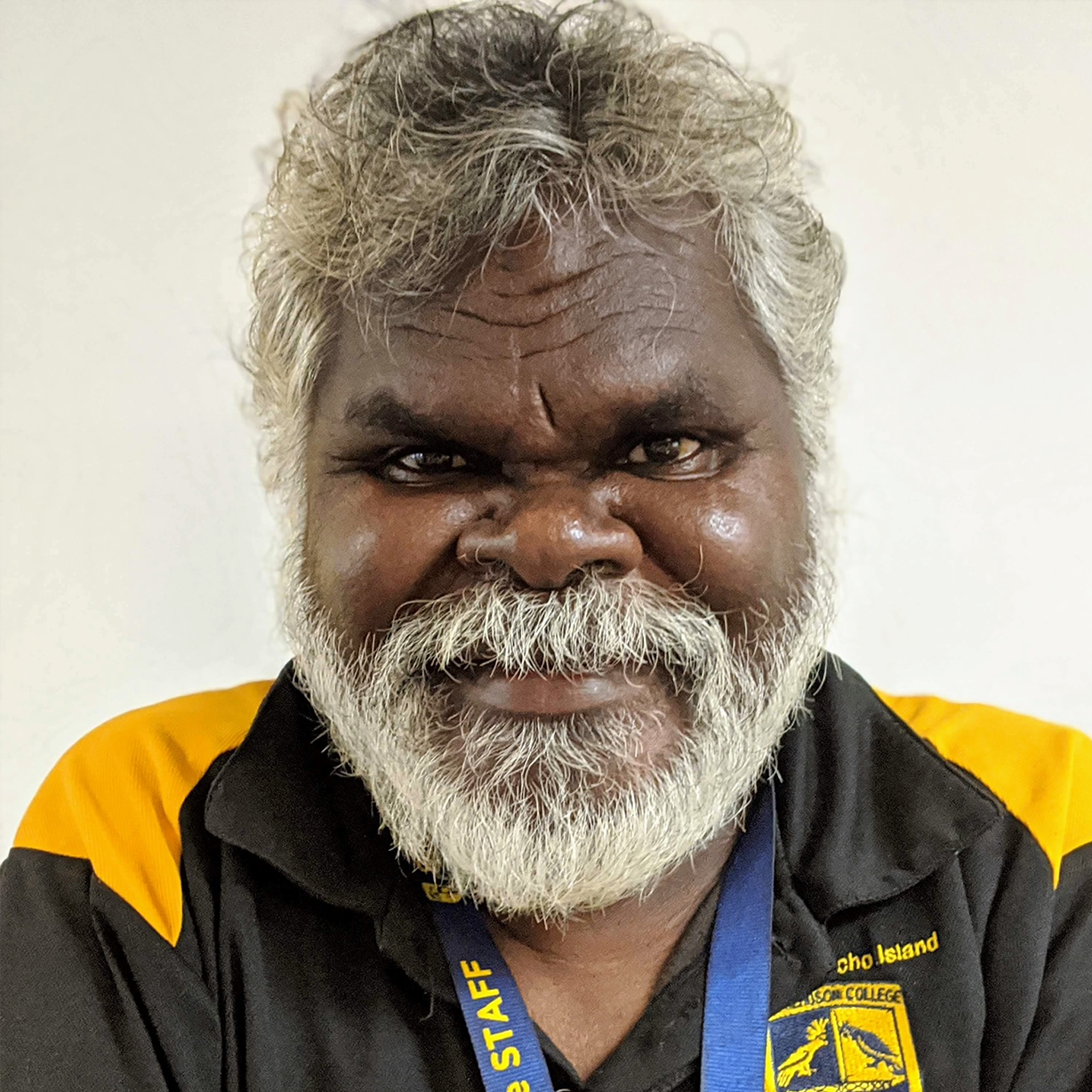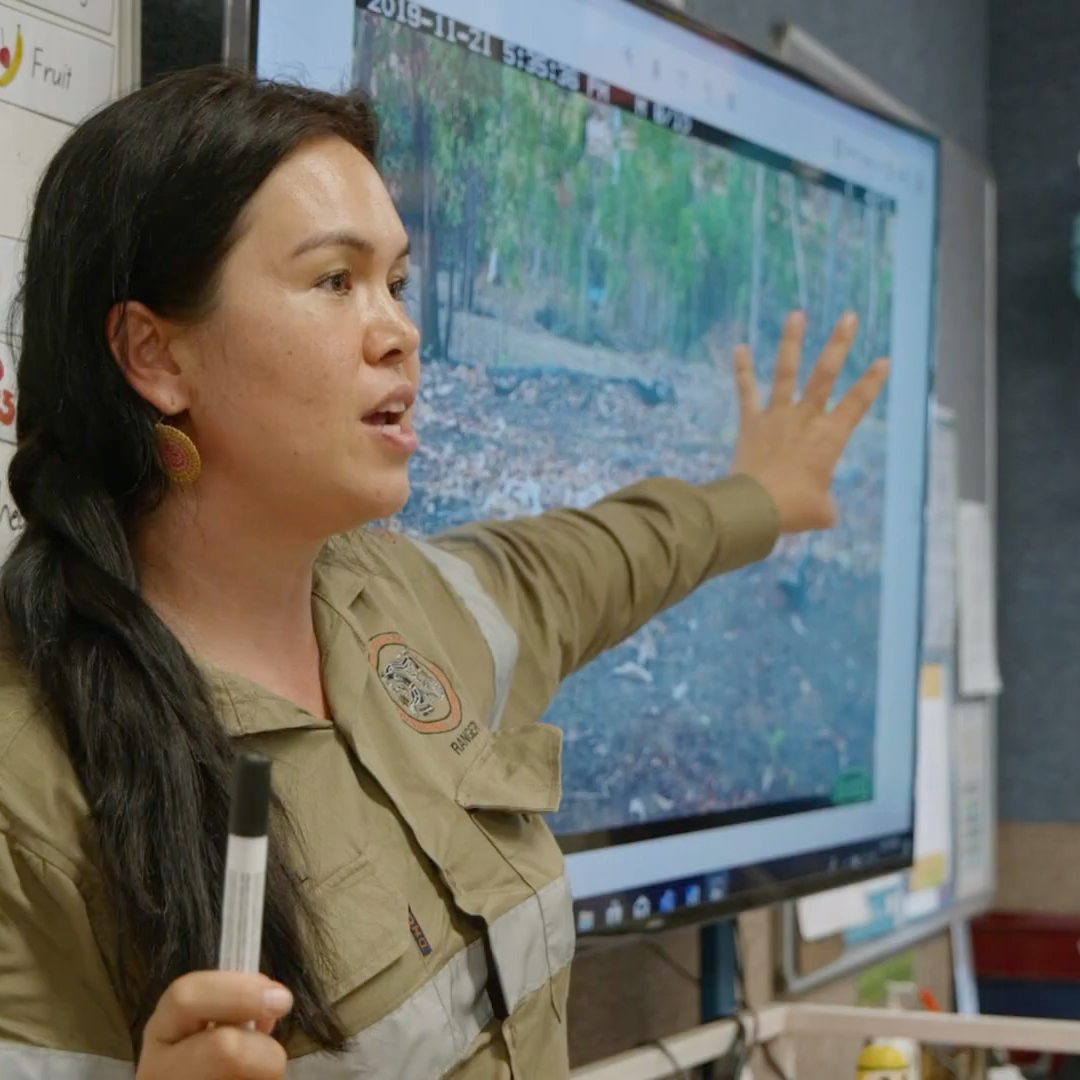About LoC
The Learning on Country (LoC) program is a joint initiative between Aboriginal Ranger groups and schools across 14 Top End remote communities aimed at integrating ‘both ways’ learning into secondary school curriculums. It’s this combination of curriculum and culture that will support remote Aboriginal students to walk strong in two worlds.
The LoC Program enjoys strong community and institutional support because it brings together two knowledge systems that link culture and curriculum. The ‘two toolbox approach’ incorporates both Western and Indigenous knowledge systems to deliver culturally appropriate education and training for remote students’ learning and employment pathways.
The LoC Program is delivered with a key focus on the senior secondary student cohort. The teaching and learning programs are developed collaboratively between school and Ranger staff, with a focus on field-based activity, drawing on traditional and western knowledge systems. Activities include a wide range of Ranger groups' projects and responsibilities around land and sea management and are modelled on cultural knowledge-based activities as directed by Traditional Owners.
The intent is to incorporate LoC into the learning culture of both the school and the community of people who support it. Field workshops and school-based learning activities are linked directly to NTCET, Australian Curriculum and VET Certificate outcomes.
The foundation to this pedagogy is sound cultural learning and validation of the program by senior Indigenous cultural mentors. Culturally-based learning activities (intergenerational knowledge transfer) is delivered by Cultural Advisors and Traditional Owners, and can be undertaken as in-class workshops, day trips or extended activities such as cultural camps.
History
The Learning on Country (LoC) Program was an initiative of four Northern Territory Aboriginal Ranger groups and the schools in each of their communities.
In 2007, the CSIRO presented a report to the Commonwealth Government which indicated Indigenous land and sea management groups had experienced a significant growth over the decade, creating business opportunities in cultural and natural resource management particularly for Indigenous populations.
Over the last ten years, schools have been actively collaborating with Rangers and associated land and sea management groups to provide educational experiences for their students. However, a lack of ongoing funding impeded further development to develop a national program.
As a means of supporting the sustainability of this growth, the Learning on Country Program (LoC Program) was formally established in 2013 between four East Arnhem Land communities. By 2018 it had grown to nine communities including Maningrida, Galiwin’ku, Yirrkala and Laynhapuy Homelands Ramingining, Milingimbi, Gapuwiyak, Umbakumba and Angurugu.
In only six years, the communities began to see success from the program.
Following the success in 2019, a further six communities, Ngukurr, Numbulwar, Borroloola, Gunbalanya, Beswick and Barunga, were included in the program. The Learning on Country program is now being delivered across 14 Top End communities.
Partners
The Learning on Country Program is funded by the National Indigenous Australian Agency and administered by the Northern Land Council and works in partnership on program delivery with the Northern Territory Department of Education.
At the 10 Year Anniversary Celebrations for the Learning on Country Program held at Nitmiluk in August 2022, Federal Indigenous Australians Minister Linda Burney confirmed a further six years’ worth of funding for the LoC program, with $29.4 million allocated to expand the initiative to 19 sites, whilst also widening the program’s target cohort to incorporate more middle and senior school students.
Leadership Team

Learning on Country Program Co-Chairs - Cindy Jinmarabynana and Danny Dangadanga
Steering Committee Co-Chair
Cindy Jinmarabynana
I am a teacher at Maningrida College and the Steering Committee chair person for the Maningrida LoC program, and also Co-Chair for the LoC Steering Committee. I was born and grew up in Maningrida Community and raised on my mother’s homeland at Blythe River. My father’s homeland is Ji-Bena. I have been involved with the bilingual program in school for a long time, as a linguist and a teacher working with old people and anthropologists and I have been part of the LoC Program in Maningrida since its beginning, and am still a part of it today.
The Maningrida LoC Program gives the students’ knowledge and safety on country, and working with old people and Rangers ensures the important stories and connections are passed down to the next generation. The Ji-Bena Indigenous Land Management camp every year works with Traditional owners and students to pass on strong cultural knowledge and also give the students credit points towards their graduation. The LoC students doing their Ranger training become qualified and gain experience being a Ranger, so that they can look after their mothers’ country when they are older. These are just two examples of the strong two way learning outcomes that the LoC Program delivers.

Steering Committee Co-Chair
Dangadanga (Danny) Garrawurra
I am the Galiwin'ku Learning on Country Steering Committee Chair and Co-Chair of the Learning on Country Program. I am Yolŋu, from Galiwin'ku, my Homeland. I live here and I work here. My clan is Ḻiyagawumirr.
The Learning on Country Program teaches two pathways - Yolŋu and Balanda (non-Yolŋu). I joined the Learning on Country program in 2015 after it started in 2012. I remember we had a big gathering across the schools to discuss how we wanted this program to be run, by who, and how it was going to work in the two-way system. I was very interested in this and put my commitment towards this program - seeing all the djamarrkuḻi' (children) learning both ways and supporting them. Our LoC program focuses on the local rangers and school in a collaborative effort, side by side, working together to take djamarrkuḻi' out on Country, Learning on Country. And recently there's a new partnership organisation - Yalu Aboriginal Corporation, that plays a big role within our LOC program at Galiwin’ku.
Two ways learning, Learning on Country, it's like this...You've got a student sitting inside the room, learning inside the class room, then you've got this program, Learning on Country, that takes the djamarrkuḻi' out on toCountry. Learning in the clear environment so the djamarrkuḻi' feel comfortable, so they feel marrparaŋ (brave/courageous/fearless). It is very important for djamarrkuḻi' to learn outside, in the environment, so the student can feel free and can see and feel everything. We are offering our knowledge, and also the land is offering knowledge back to us. This is both ways learning.

Northern Land Council Chair
Matthew Ryan
As a former ranger in my hometown of Maningrida, I’ve seen the widespread positive impacts of the Learning on Country program first-hand. It is important for our young people to have opportunities in front of them, and two-way learning supports our kids to stay connected to their culture while they navigate the world. The program allows them to learn skills, feel proud and build confidence – this strong foundation leads to healthier and happier communities in the long-term.



